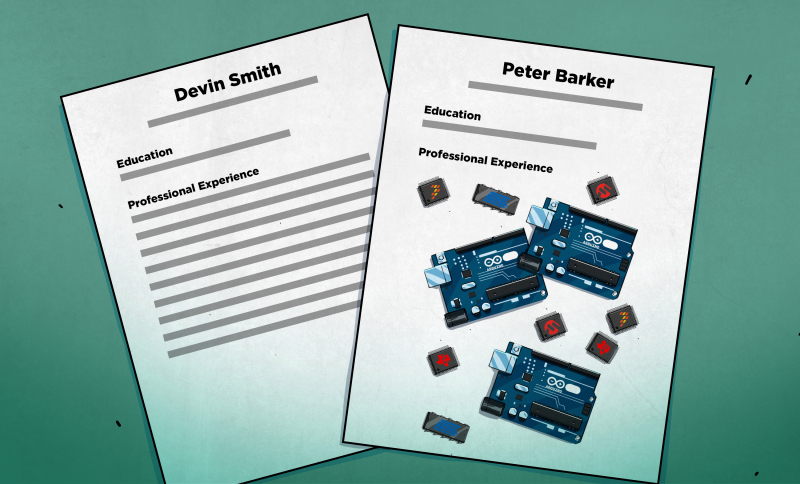
Hackaday readers are a vast and varied bunch. Some of us would call ourselves engineers or are otherwise employed in some kind of technical role. Others may still be studying to gain the requisite qualifications and are perhaps wondering just how to complete that final leap into the realm of gainful employment.
Well, this one’s for you.What sort of job are you looking for?
You might be a straight, down the lines, petroleum engineering graduate who’s looking to land a job in the oil and gas industry. Conversely, you might be an arts student who’s picked up a few skills with electronics over the years and are keen to gain a position doing grand installation pieces for musuems or corporate clients.
There’s a broad spectrum of jobs out there that require high-level technical skills, and my first piece of advice is that you shouldn’t limit yourself. There are things you can do to keep your options open, even over a long career – these could pay dividends when you’re looking for a seachange.
Can You Do The Job?
One of the reasons people enter degree programs is that the piece of paper is, ideally, proof that you have a certain set of skills. You can show up to an interview looking for a chemical engineer and you can wave your paper around that says “Yes, I know how to do that!”
It’s a grand idea, but today the degrees you work so slavishly for are more about keeping your resume in the pile than anything else. Once you get to the interview, there are two main things you need to achieve. The first is to prove that you’re a decent human being who can get along with others and show up to work on a regular basis.
This is common to all jobs. The second is to prove that you are capable of completing the work required and that you have the necessary skills to do so.“How do I prove that? Surely that’s the whole point of the degree!” you might say. The degree is great at proving you have passed a lot of exams on theory, but doesn’t prove your experience. Alternatively, you can tell people you know how to analyse fluid flows and optimise assembly code until you’re blue in the face, but talk is cheap. You need to show people you can walk the walk.
The trick is to draw on your prior experiences to back up your story. If you tell me you can write HTML code and create a decent website, I might believe you or I might not. Backing that up with a certificate might help a little. However, if in the interview you can direct me to check out TarasAwesomeWebsite.com and I find a super-responsive, clean, well designed page and you can then walk me through the development process, then I am seeing first hand that you’ve got what it takes.
An Example
Once upon a time, I was a student studying Aerospace Engineering, and wasn’t paying too much attention to where life would take me after university. As my studies drew…
The post Why I Got The Job appeared first on FeedBox.